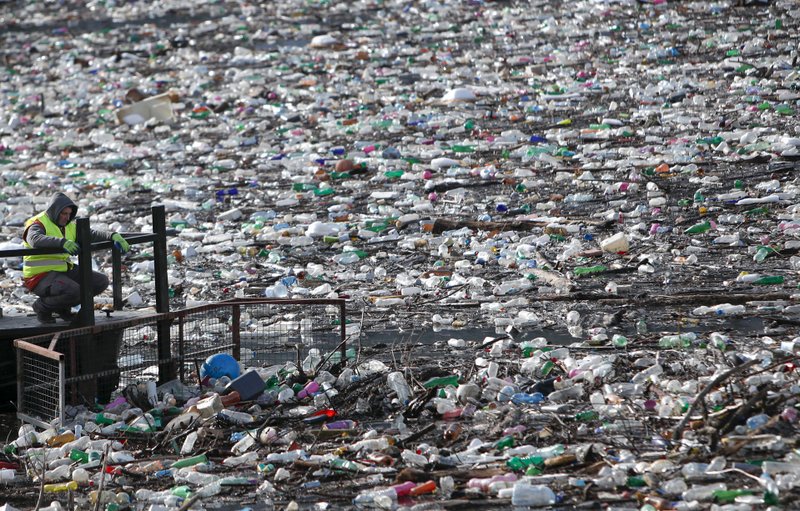Rubbish-covered lake brings to light Balkans waste problem (apnews.com)

The article notes that these countries have been trying to recover from the wars and crises of the 1990s, but that environmental issues have been coming last.
The article notes that landfills are too close to rivers and are overfilled.
The article also mentioned that there are dangerous levels of air pollution in the cities. They say that they need to make some major changes and come up with solutions to these problems if they're ever going to be able to join the EU.

PRIBOJ, Serbia (AP) — Trucks and building machines are parked on a river dam in southwest Serbia but not for construction work. Instead, huge cranes are being used to clear tons of garbage crammed at the foot of the power plant.
Serbia and other Balkan nations are overwhelmed by communal waste after decades of neglect and lack of efficient waste-management policies in the countries aspiring to join the European Union.
Burning rubbish dumps can be seen from the roads, plastic bags are hanging from trees and islands of waste are floating down the region’s rivers. The problem usually comes into focus in winter, when swollen waters sweep over landfills, pushing the garbage toward hydropower dams.
This has been the case at the Potpec accumulation lake near the power plant after a spate of rainy and snowy weather in December and early January. The surface of the lake got covered in a thick layer of waste ranging from plastics to rusty metal scraps, tree trunks and even reportedly a coffin.
The garbage has been swept downstream by the Lim River, which feeds the Potpec dam. The Lim originates in neighboring Montenegro, passing through several municipalities and their waste sites in both Montenegro and Serbia.
“Based on a recent study, we found out that in these towns, in the five municipalities in Montenegro and three in Serbia, about 45,000 tons of waste are collected (per year),” said Predrag Saponjic, the Lim River hydropower plant system manager. Looking at the rubbish-strewn lake, he added that “even if only a fraction of that waste ends up in the Lim River, we get this.”
Environmentalists in the Balkans have warned that because most landfills aren’t managed properly they leak toxic materials into rivers, threatening ecosystems and wildlife.
Bosnia too has reported a garbage pileup that endangers the hydroelectric dam on the Drina River, near the eastern town of Visegrad. The Lim is one of the tributaries of the Drina, which makes their waterways — and garbage flows — closely connected.
The article notes that these countries have been trying to recover from the wars and crises of the 1990s, but that environmental issues have been coming last.
While Balkan nations have been struggling to recover following a series of wars and crises in the 1990s, environmental issues often come last for the countries whose economies are lagging far behind the rest of Europe and where public funds are vulnerable to widespread corruption.
The article notes that landfills are too close to rivers and are overfilled.
Jugoslav Jovanovic, from Serbia’s state-run Srbijavode company that is in charge of the country’s water system, put the waste problem down to “our neglect and lack of care.” Landfills are located too close to rivers and are overfilled rather than closed down over the years, he warned.
The article also mentioned that there are dangerous levels of air pollution in the cities. They say that they need to make some major changes and come up with solutions to these problems if they're ever going to be able to join the EU.
